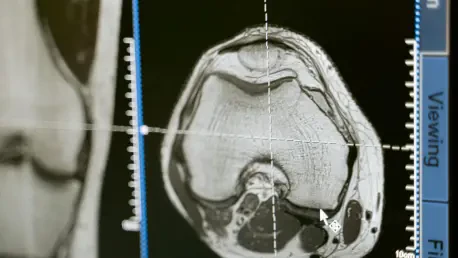Could the future of brain tumor diagnosis truly be in the hands of artificial intelligence? As medical science rigorously explores the confluence of technology and healthcare, AI emerges as a groundbreaking tool in the world of cancer diagnostics. Specifically, this transformative technology presents an epigenetic fingerprinting approach to identify brain tumors with remarkable precision, providing new hope for non-invasive diagnostic procedures.
The Need for Non-Invasive Turnarounds: A Medical Imperative
In today’s medical landscape, traditional methods of diagnosing brain tumors often involve invasive surgical procedures like biopsies, which come with inherent risks and potential inaccuracies. These conventional techniques may delay treatment initiation, causing unnecessary anxiety and health risks for patients. In contrast, a faster diagnostic process could improve patient outcomes significantly by facilitating timely and effective treatment strategies.
Decoding Epigenetic Fingerprints: The Role of AI Models
Epigenetic modifications act as genetic regulators, determining the on/off status of genes, thus forming unique patterns similar to fingerprints. An AI model developed through collaborative research notably demonstrated an astounding 99.1% accuracy in classifying brain tumors. This precision points to its potential applicability across a broader spectrum of cancers, enhancing diagnostic accuracy and reducing reliance on risky tissue sampling.
Expert Perspectives from the Front Lines
Researchers at Charité – Universitätsmedizin Berlin emphasize AI’s transformative potential in diagnosing cancer. The model’s advanced capabilities underline a trend toward personalized medicine, focusing on the unique molecular structure rather than anatomical location. This shift signifies a dynamic evolution in medical diagnostics, potentially leading to more personalized and effective treatment plans.
Bridging Theory and Practice: AI Integration in Healthcare
The journey from theoretical development to practical application of AI in healthcare involves careful integration, beginning with clinical trials. While challenges remain—such as data privacy concerns and ensuring seamless incorporation of AI systems within existing healthcare frameworks—the ongoing trials show promising advancements. The focus remains on establishing trust and usability in clinical settings.
A New Dawn in Cancer Diagnostics
AI models like these have ushered in a new era of precision and non-invasiveness in cancer diagnosis. As the medical community further refines these tools, they provide a roadmap for earlier, more accurate detection and treatment, thus redefining standards in cancer care. With continuous support and development, such AI-driven solutions hold promise for not only improving patient outcomes but also transforming the broader healthcare landscape. The realization that such tools could become standard practice marks a pivotal moment in integrating technology with compassionate patient care.









